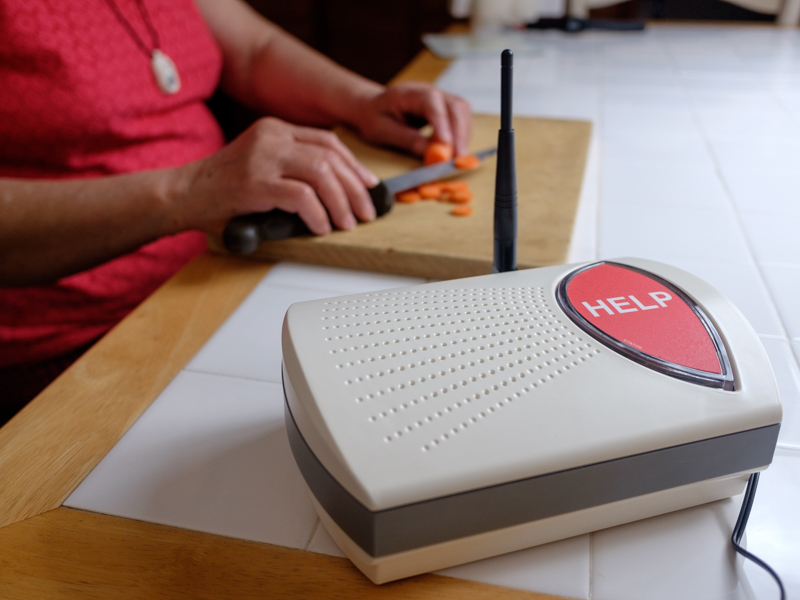Last Thursday, I had just arrived at the cottage to begin our summer holiday when the telephone rang. It was my niece. Mom had fallen and was in an ambulance on the way to hospital. As it happened, my sister was out of the country, so I quickly put what food I could into the freezer and drove south to Montreal where my mother lives. When things settle down a bit (Mom's still in the hospital, now waiting for a convalescent bed), I'll blog about the last week and what it's meant to me. But in the meantime, here is something that came to my attention recently - I've been thinking a lot about fall prevention and alert systems a lot, naturally! There's loads of great consumer advice in the unabridged article - you can read it in full HERE. But here's a snippet:
Our Picks for the Best Medical Alert Systems in 2016: Best Overall
Bay Alarm MedicalBay Alarm Medical is our top pick for its superior customer service and caring bedside manner.
It started with the little things: Web ordering was painless, and its crisp website has video demonstrations, a weekly blog, and clear pricing and terms. When our unit arrived, it came with a pair of spiffy striped socks, and setup was simple: just flip up its antennae and plug it in.
But where Bay Alarm really shines is the human element. When we talked to the monitoring representatives, there was a genuine warmth and calm — it was like calling your fourth-grade teacher. When we told them we were just testing the device, the rep always said some version of “I’m glad to hear that everything is okay.”
We unplugged the Bay Alarm Medical device to test its backup battery and within 20 minutes, Joseph at Central Station called to notify us that there was a loss of power signal. No other provider did this.
Bay Alarm’s cellular base station doesn’t win for its looks. It’s clunky, with just a big red “Help” button. Other cellular base stations we tested have a screen that displays the time, the strength of your cellular signal, and the status of the backup battery. Bay Alarm tells you your cellular signal by calling out “Two bars” or “Three bars,” sometimes when you aren’t expecting it — not particularly helpful, especially since we don’t know Bay Alarm’s maximum number of bars. And on average, it took 60 seconds to connect us to a monitoring center, which was slightly longer than Medical Guardian and MobileHelp.

Bay Alarm Medical’s base station isn’t subtle, but setting it up is easy and their call-center support blew us away.
However, Bay Alarm had exceptionally high backup battery life during our hands-on testing phase (52 hours compared to 30–36 hours for the competitors we tested). And while the design is very basic, it isn’t difficult to set up or operate, and it passed our range tests. Ultimately, it comes down to substance over style: We felt like Bay Alarm would best see us through an emergency.
No comments:
Post a Comment